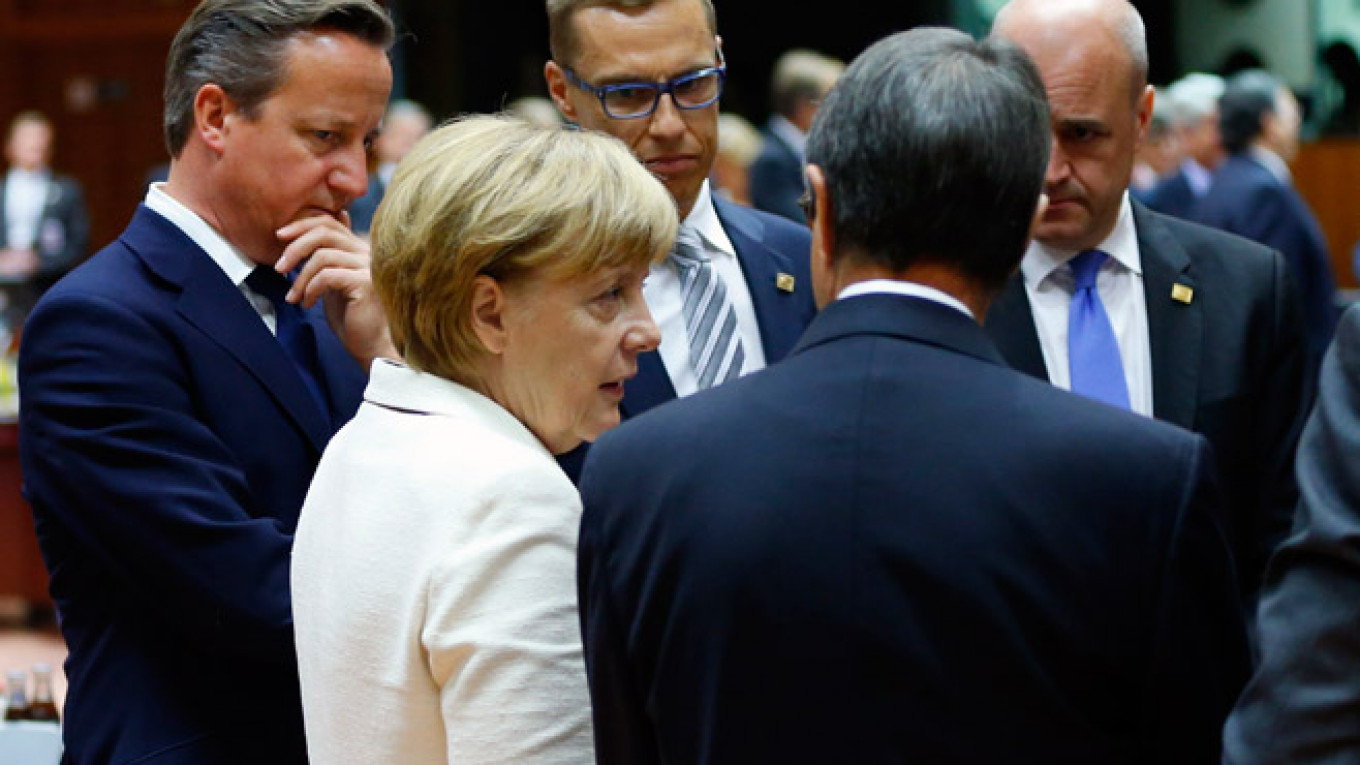BRUSSELS — The U.S. is considering limiting high-tech exports to Russia's Arctic oil and gas industry as part of plans to strengthen sanctions against Moscow over the crisis in Ukraine, a U.S. envoy said Wednesday.
On the eve of a NATO summit in Wales, the U.S. is expected to join the European Union in imposing new sanctions on Russia after EU leaders agreed at the weekend that the direct engagement of Russian troops in Ukraine in support of separatist rebels merited such a step.
"We are looking at further tightening of restrictions on energy exports and the licensing of high-tech exports, not only to the energy sector but specifically to Arctic oil and gas," the U.S. Ambassador to the European Union, Anthony Gardner, said in Brussels.
Russia, the EU's main energy supplier, has some of the world's largest undiscovered oil and gas deposits off its coasts and its energy ambitions could be jeopardized by sanctions.
Gardner said the U.S. was working in close cooperation with the European Commission, EU ambassadors and EU leaders on the next steps to pressure President Vladimir Putin into a political solution in Ukraine.
In the early stages of the conflict in Ukraine, the U.S. moved more quickly than Europe, and U.S. President Barack Obama imposed sanctions on some of Russia's biggest firms for the first time in July.
But the EU has taken firmer steps since the downing of a Malaysian airliner over rebel-held territory in eastern Ukraine.
Following the EU leaders' call for stronger sanctions, the European Commission is finalizing a draft of new measures, and EU governments will make a decision on the final shape of the package by Friday.
Diplomats have said that the EU is considering widening to all Russian state-owned firms a ban on borrowing or raising capital in Europe, as well as barring Russian Defense Minister Sergei Shoigu from entering the EU.
Asked if the U.S. would also move to limit Russian state firms from financing themselves abroad, Gardner said: "All those options are on the table. We've considered tightening of financial restrictions; you mentioned one of them."
He also said Washington was considering tightening restrictions on military sales to Russia but declined to go into further detail.
Measures discussed by EU ambassadors on Monday also included banning syndicated EU loans to Russian government-owned banks and institutions and a ban on buying Russian derivatives.
Other ideas include an expansion of an export ban on goods that can have both military and civilian use to all potential Russian importers, not just companies in the defense sector as agreed by the EU sanctions package from July.
"Everything is on the table right now," Gardner said.
A Message from The Moscow Times:
Dear readers,
We are facing unprecedented challenges. Russia's Prosecutor General's Office has designated The Moscow Times as an "undesirable" organization, criminalizing our work and putting our staff at risk of prosecution. This follows our earlier unjust labeling as a "foreign agent."
These actions are direct attempts to silence independent journalism in Russia. The authorities claim our work "discredits the decisions of the Russian leadership." We see things differently: we strive to provide accurate, unbiased reporting on Russia.
We, the journalists of The Moscow Times, refuse to be silenced. But to continue our work, we need your help.
Your support, no matter how small, makes a world of difference. If you can, please support us monthly starting from just $2. It's quick to set up, and every contribution makes a significant impact.
By supporting The Moscow Times, you're defending open, independent journalism in the face of repression. Thank you for standing with us.
Remind me later.






